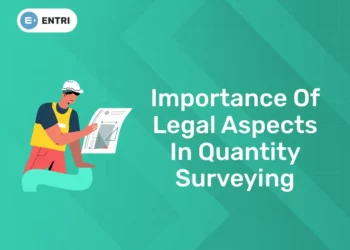Table of Contents
Kerala Administrative Service (KAS) is one of the most buzzworthy recruitment drives in Kerala. For the past two years, the government has also pushing for KAS recruitment. The Kerala PSC KAS exam is conducted in three stages: Prelims, Mains, and Interview. The preliminary stage of the Kerala PSC KAS exam 2023 is qualifying in nature. In other words, marks obtained by candidates in the preliminary stage are not considered in the final merit list. Kerala Public Service Commission (KPSC) has released the syllabus for Kerala Administrative Services 2023 along with its notification for the post of KAS Officer (Junior Time Scale) Trainee.
For a career in the Kerala Administrative Service, the KPSC GPE is the entry stage. Through KAS eligible graduates will be able to start their career in the state government service at the Junior Time Scale Trainee STREAM-1, STREAM-2, STREAM-3 and can further advance towards IAS within 08 years of service. KAS official notification is expecting by the end of 2023. Here we are bringing you the KAS Exam Syllabus Prelims and Mains.
Get Higher Rank in KAS Exam- Download Entri App Now!
KAS Syllabus 2023
Entire syllabus is available here for anyone who are interested in applying for the KAS 2023 exam. All candidates for the Kerala Administrative Service (KAS) Exam can find a detailed discussion of the Kerala PSC KAS Syllabus 2023 below.
KAS Exam Pattern 2023
The Kerala PSC KAS Exam is administered in three phases, like are all PSC Exams, in the order listed below. Two written exams and one interview. In order to be qualified as KAS Officers, applicants who are applying for the KAS exam 2023 must pass each stage of the examination.
1. Preliminary Exam: Objective type (MCQs) – 200 Marks
2. Mains Exam: Essay/ Descriptive type – 300 Marks
3. Interview/Personality Test – 50 Marks
KAS Preliminary Exam Pattern 2023
First stage of the Kerala PSC KAS exam is the preliminary examination. The preliminary examination consists of two papers: Paper I & Paper II. Interested candidates can check the key preliminary exam pattern highlights of the Kerala PSC KAS exam 2023.
- Both papers of KAS prelims exams have multiple choice questions
- In both Paper I and Paper II, 200 questions will be asked in the paper.
- Time duration for both paper is 90 minutes.
- Paper 1 is concerned with General Studies. The medium of questions asked in this paper will be English.
- Paper 2 can be divided into three parts: General Studies, Language Proficiency (any language among Malayalam, Tamil, Kannada), and Language Proficiency of English.
- The medium in which the question will be asked is English for General Studies part
- The medium of questions for both Language Proficiency Parts will be in the respective language only. Example: Questions of Kannada Language paper will be asked in the Kannada medium.
- In paper 2, General Studies will be of 50 marks, the Language proficiency of Kannada/ Tamil/ Malayalam will be of 30 marks and the language proficiency of English will be of 20 marks.
- Marks scored by candidates in the preliminary exam will not be considered while making the final merit. In other words, the preliminary exam is qualifying in nature.
| S No | Details of Papers | Maximum Marks | Exam Duration | Number of Questions |
| 1 | Paper I: General Studies | 100 | 90 minutes | 100 |
| 2 | Paper-II: Part I General Studies | 50 | 90 minutes | 50 |
| 3 | Paper-II: Part II Language Proficiency in Malayalam/ Tamil/ Kannada | 30 | 30 | |
| 4 | Paper-II: Part II Language Proficiency in English | 20 | 20 |
ACE THE KAS EXAM NOW!
KAS Mains Exam Pattern 2023
KAS Mains examination is a descriptive examination consisting of three papers. The key highlights of the KPSC KAS Mains exam pattern are as follows:
- The time duration allotted for each paper will be 2 hours.
- Unlike Preliminary Exam, Kerala PSC KAS Mains Examination will be written or descriptive in nature.
- The medium in which the Questions will be asked in the Mains examination will be English and Malayalam.
- Total marks for 3 papers is 300.
| S No | Details of Papers | Maximum Marks | Exam Duration | Medium |
| 1 | Paper I Descriptive |
100 | 120 minutes | English/ Malayalam |
| 2 | Paper II Descriptive |
100 | 120 minutes | English/ Malayalam |
| 3 | Paper III Descriptive |
100 | 120 minutes | English/ Malayalam |
Kerala PSC KAS Interview
Last stage is testing the personality of the candidate. This will be of 50 marks. Candidates who qualify the mains exam will be eligible to appear for the interview/ Personality Test. The mental ability of the candidates will be tested through this interview procedure.
The selected Kerala Administrative Service officers would be on probation for two years. The probationer needs to pass the following tests after he/she gets into service within the predetermined period.
- The Revenue Test
- The Criminal Judicial Test (A candidate who possesses a degree in Law shall not be required to pass the criminal Judicial test).
- Account Test
Get Higher Rank in KAS Exam- Download Entri App Now!
KAS Prelims Syllabus 2023
The Kerala PSC KAS Preliminary Exam is conducted to filter candidates for the Mains exam. As per the Kerala Public Service Commission, the KAS Prelims exam consists of two papers: Paper I and Paper II.
KAS Prelims Syllabus: General Studies-I
Also the KAS syllabus for Prelims General Studies-I is given below:
A) History (India and Kerala)
1)Ancient and Medieval Period :-
(i) Salient features and major landmarks of ancient and medieval India (ii) Art, culture, literature and Architecture (iii) Major Dynasties, their administrative system, social, religious and economic conditions prominent movements.
2) Modern Period :-
(i) Modern Indian History (from the 18th century Upto the present) significant events, personalities and issues (ii) India – Struggle for independence (iii) Social and religious reform movements in the 19th and 20th century (iv) India after Independence, Post independent consolidation and reorganisation (v) Independent India and her neighbours.
3) Kerala History (from 18th century):-
(i) Pre-Independence socio-political movements. Formation of Kerala State, Political parties, movements, Governments, Landmark legislations and policies.
Kerala model development
- Land reforms, Social security, devolution of Power
- Decentralized Planning, Housing, Tourism,
- Women Empowerment,
- Social Welfare Schemes,
- Disaster Management.
- Role and Function of Kerala Planning Board,
- Achievements of Kerala in Health and Education Sector: Policies, Programmes, Initiatives, and Impacts.
B) History of the World (from mid 18th century)
(i) Industrial revolution (ii) World wars (iii) Redrawal of National boundaries (iv) Colonialisation and decolonialisation, (v) Globalisation (vi) Communism, Capitalism, Socialism – their forms and effects in society.
C) Cultural Heritage of Kerala
1) Cultural Heritage of Kerala Art Forms, literature, sculpture, architecture, salient features of society.
2) Kerala Tribal culture, Pilgrimage, Tourist places, Folk Culture, Cinema, Theatre.
3) History and revolution of Malayalam language and literature.
D) Indian Constitution, Public Administration, Political System, Governance, Social Justice and International Relations
1) Indian Constitution and its salient features.
2) Functions and Responsibilities of the Union and the States, Parliament and State Legislatures – structure, function, power and privileges. Issues and challenges pertaining to Federal Structure – Devolution of Power and Finances upto local levels and challenges therein.
3) Constitutional Authorities – Powers, Functions and Responsibilities.
4) Panchayati Raj, Public Policy and Governance, Impact of L.P.G on Governance.
5) Statutory, Regulatory and Quasi judicial bodies.
6) Rights Issues (Human rights, Women rights, SC/ST rights, Child rights, etc.), Important Acts.
7) India’s Foreign Policy, International Organisations, International Treaties and Forums, their structure and mandate
8) Judiciary in India – Structure and functions, important provisions relating to Emergency and Constitutional amendments, Judicial review, Public Interest Litigation, Land Revenue Laws.
9) Fundamental rights, fundamental duties and Directive Principles
10) Principles of Administrative Law.
E) Reasoning, Mental Ability & Simple Arithmetic
(1) Logical Reasoning and Analytical Ability, Number series, Coding – Decoding, problems related to Relations, Shapes and their sub- sections, Venn Diagram, problems based on Clock, Calendar and Age, Simple Arithmetic.
F) Geography
1) General Geography: Solar system, Motion of Earth, Concept of time, Seasons, Internal structure of the Earth, Major Landforms and their features. Atmosphere – Structure and Composition, elements and factors of Climate, Airmasses and Fronts, atmospheric disturbances. Oceans: Physical, Chemical and Biological characteristics, Hydrological Disasters, Marine and Continental Resources.
2) Physical, Social, Economic Geography of World, India and Kerala.
3) Geophysical phenomena like Earthquake, Tsunami, Volcanoes, Cyclone, Flood, Landslides.
KAS Prelims Paper-II Syllabus: General Studies-II
The KAS syllabus for Prelims Paper-II General Studies-II is given below:
A) Economy and Planning
1) Indian economy on the eve of independence. Indian economy in post reform period – new economic reforms, NITI Aayog, National Income and Per Capita Income, Sectoral Composition (Output and Employment) – Primary, Secondary and Tertiary. Development under different policy regimes (including Five Year Plans) – Goals, Constraints, Institutions and Policy framework.
2) Agriculture Sector, Land Reforms in India, Technological change in Agriculture – Major Crops and Cropping patterns in various parts of the Country, Irrigation, Pricing of agriculture inputs and outputs, Agricultural Finance Policy and Marketing, Issues in Food Security and Public Distribution System, Green Revolution, Policies for sustainable agriculture and organic farming.
3) Industrial Policy, Public Sector enterprises and their performance, Growth and pattern of industrialization, Small-scale sector, Productivity in industrial sector, SEZ and industrialization, foreign investment and competition policy, e-Commerce, Effects of liberalisation on the economy.
4) Infrastructure in Indian Economy, Meaning and importance of infrastructure – Water Supply and Sanitation- Energy and Power – Science and Technology – Rural and Urban infrastructure, Ports, Roads, Airports, Railways, Telecommunication, Dams, Inland Waterways. Social Impact Assessment.
5) Trends and Patterns in structure of population over time – Growth rate, Gender Rural-Urban Migration, Literacy, Regional Structure and trends of Poverty and Inequality, Unemployment – trends, Structure and National Rural Employment policies. Indicators of development – Physical Quality of Life Index, Human Development Index, Human Poverty Index, Gender Development Index, National Happiness Index.
6) Indian Public Finance, Government Budgeting, Indian Tax System, Public Expenditure, Public Debt, Deficit and Subsidies in the Indian Economy. Centre-State financial relation. Recent fiscal and monetary policy issues and their impact, structure of Indian Banking and Non Banking Financial Institutions and reforms, GST: Concept and Implications. Stock exchange and share market.
7) Trend, Composition, Structure and direction of India’s Foreign Trade. India’s Balance of payments situation in post reforms period.
8) Economy of Kerala State-an overview, Population, Major agriculture, Industry, Service sector issues. Infrastructure and resources, Major Developmental Projects, Programmes and Schemes. Cooperative Sector. History and relevant policies in traditional industries, IT Sector, Pravasi and Foreign remittance.
9) Kerala model development – (Land reforms, Social security, devolution of Power, Decentralised Planning, Housing, Tourism, Women Empowerment, Social Welfare Schemes, Disaster Management. Role and Function of Kerala Planning Board, Achievements of Kerala in Health and Education Sector: Policies, Programmes, Initiatives and Impacts.
B) Science and Technology
1) Science and Technology: Nature and scope of Science and Technology, Relevance of S&T, National policy on S&T and innovations, Basics of everyday science, Human body, Public Health and Community Medicine, Food and Nutrition, Health Care.
Institutes and Organizations in India promoting integration of S&T and Innovation, their activities and contributions, and Contribution of Prominent Indian Scientists.
2) ICT : Nature and Scope of ICT, ICT in day today life, ICT and industry, ICT and Governance – various Government schemes promoting use of ICT, e-Governance Programmes and Services, Netiquettes, Cyber Security concerns – National Cyber Crime Policy. MIS. Artificial Intelligence – benefits and impacts, Robotics.
3) Technology in Space and Defence: Evolution of Indian Space Programme, ISRO – it’s activities and achievements, various Satellite Programmes – DRDO-vision, mission and activities.
4) Energy requirement and efficiency: India’s existing energy needs and deficit, India’s energy resources and dependence, Renewable and Non-renewable energy resources, Energy Policy of India – Govt. Policies and Programmes, Energy Security and Nuclear Policy of India.
5) Environmental Science: Issues and concerns related to the environment, its legal aspects, policies and treaties for the protection of environment at the National and the International level, Environment protection for sustainable development.
Biodiversity – its importance and concerns, Climate change, International initiatives (Policies, Protocols) and India’s commitment, Western Ghats, Features, Characteristics and issues.
Forest and wildlife – Legal framework for Forest and Wildlife Conservation in India.
Environmental Hazards, Pollution, Carbon Emission, Global Warming. National action plans on climate change and Disaster Management.
Developments in Biotechnology, Green Technology and Nanotechnology.
C) General Knowledge and Current Affairs
- Current Events of National and State Importance.
- National Movements with Special Reference to Kerala – Political, Social, Economical and Cultural Movements.
- Physical, Social and Economic Geography of India with importance on Kerala.
- Indian Polity and Governance, Salient features of the Constitution of India, Political System, Panchayat raj System, Public Policy.
- Human Rights, Social Audit, Lokayukta, Ombudsman, Women’s Commission, Child Labour.
- Sustainable Development, Poverty Alleviation, Inclusion, Social Sector Initiatives, Important Government Schemes
- Environmental Ecology, Biodiversity, Climatic changes, and Disaster Management.
- Indian Space Programme, Basics of Chemistry, Biology, Physics
- Basic Facts about IT and Cyber Laws
D) Language Proficiency – English
1) Tenses 2) Synonyms 3) Phrasal Verbs 4) Antonyms 5) Error Correction 6) Adjectives 7) Adverbs 8) Reported Speech 9) Active Voice 10) Passive Voice 11) Auxiliary Verb 12) Question Tag 13) Degrees of Comparison 14) Punctuation 15) Idioms and Phrases 16) Simple Compound Complex Sentences 17) Connectives 18) Prepositional Verbs 19) Prepositions 20) Concord 21) Pronouns – 9 types 22) Word Order and Sentence Order.
E)-1 Language Proficiency – Malayalam
1) പദശുദ്ധി 2) വാക്യശുദ്ധി 3) പരിഭാഷ 4) ഒറ്റപദം 5) പരയായം 6) വിപരീത പദം 7) ൈശൈലിക്ള് പഴഞ്ചൊല്ഞ്ചാല്ലുക്ള് 8) സമാനപദം 9) േചേര്ത്തൊല്ത്തെഴുതുക് 10) സ്ത്രീലിംഗം പുല്ലിംഗം 11) വചേനം 12) പിരിൊല്ച്ചെഴുതല് 13) ഘടക് പദം (വാക്യം േചേര്ത്തൊല്ത്തെഴുതുക്) 14) ഭരണഭാഷയുമായി ബന്ധപ്പൊല്പ്പെട്ട് ഒരു ഖണ്ഡിക് നല്കി അതിൊല്ന ആധാരമാക്കി േചോദയങ്ങള് 15) ഔദ്യേദയാഗിക് ഭാഷാ പദാവലി, വിപുലനം, സംഗ്രഹം.
OR
2 Language Proficiency – Kannada
1) Word Purity / Correct Word 2) Correct Sentence 3) Translation 4) One Word / Single Word / One Word Substitution 5) Synonyms 6) Antonyms 7) Idioms and Proverbs 8) Equivalent Word 9) Join the Word 10) Feminine Gender, Masculine Gender 11) Number 12) Sort and Write 13) Add Phrases 14) Comprehension.
OR
3 Language Proficiency – Tamil
1) Correct Word 2) Correct Structure of Sentence 3) Translation 4) Single Word 5) Synonyms 6) Antonyms / Opposite 7) Phrases and Proverbs 8) Equal Word 9) Join the Word 10) Gender Classification – Feminine, Masculine 11) Singular, Plural 12) Separate 13) Add Phrases 14) Comprehension.
Get Higher Rank in KAS Exam- Download Entri App Now!
Apart from a few additional topics, the syllabus for both the Kerala PSC KAS Preliminary and Mains exam is mostly the same. The detailed syllabus is given below:
| Paper | Sections | Topics |
| General Studies Paper – I | Indian and Kerala History | Ancient India: Art, Literature, Art architecture and Culture, Popular Dynasties and their activities and movements |
| Modern Period: Modern Indian History, All religious and social reforms of the 19th and 20th century, India before and after independence, with major events and personalities | ||
| Kerala History: Kerala political and social movements before independence, Political parties and their movements, Governments, Kerala state establishment, and significant policies and legislation | ||
| World History | Industrial Revolution, World wars, Colonisation and Decolonisation, Effects and Forms of Communism, Capitalism, and Socialism, Redrawn national boundaries | |
| Kerala Cultural Heritage | Art, architecture, and literature, Sculpture, Folk culture, Tribal culture, Features of the society, Pilgrimage, Theatre, History and Evolution of Malayalam language and literature, etc | |
| General Studies Paper – II | Governance, Indian Constitution, International Relations, Social Justice, Public Administration, and Political System | Indian Constitution and its features, Responsibilities and Functions of the Union and the Parliament, Constitutional authorities, State and State legislatures, Judiciary in India, etc |
| Science and Technology | Science and Technology in Space and Defence, Environmental technology, Energy, ICT, etc | |
| Current Issues | Current issues of all the sections and topics included in this paper | |
| General Studies Paper – III | Geography | Earth motion, Climate factors and elements, Atmosphere, Solar System, Seasons, Geophysical occurrences, Concept of time, etc |
| Economics and Planning | Indian economy after independence and various reform movements | |
| Agriculture | Green Revolution, Irrigation, Prices of agricultural inputs and outputs, food security, public distribution system, etc | |
| Infrastructure | Meaning and Importance of Infrastructure, Water supply, and Sanitation, Infrastructure in the Indian economy, etc | |
| Industry | Industrial Policy, e-commerce, SEZ and Industrialization, Productivity in Industrial sector, etc | |
| Finance | The tax system in India, Centre-State financial relation, Concept and implications of GST, Government Budgeting, Indian Public Finance, etc | |
| Indian Foreign Trade | Composition, Direction, Trends, and Structure | |
| Population | Growth trends and patterns, unemployment trends, etc | |
| Kerala Economy | Population, Infrastructure, Industries and Service sector, Agriculture, etc. | |
| Kerala Development Model | Tourism, Planning, Power Distribution, Disaster management, etc | |
| Current Issues in Geography and Economic Planning | Current issues of all the sections and topics included in this paper |
List of services in Kerala Administrative Service
According to the draft rules proposed by the Government, the Kerala Civil Service Executive Special Rules, Kerala Administrative Service(KAS) officers will be posted across 29 departments in Kerala State Government services including Kerala Secretariat Public Administration & finance. Recommended departments are :
- Administrative Secretariat
- Finance Secretariat
- Civil Supplies
- Commercial Taxes
- Commissionerate of Entrance Examinations
- Co-operative department
- Culture
- Industries and Commerce
- Labour
- State Lotteries
- National Employment Service
- National Savings
- Kerala State Audit
- Land Revenue
- Panchayats
- Registrations
- Sainik Welfare
- Social Justice
- State Insurance
- Stationery
- Kerala State land use board
- Rural development
- Scheduled Caste development
- Scheduled Tribe development
- Survey and land records
- Treasuries
- General Education
- Tourism
- Urban Affairs
- Common Categories – Administrative Officer, Administrative Assistant, Accounts Officer, Financial Assistant.
Kerala PSC KAS 2023 Syllabus Pdf
According to the draft rules published by the government, Kerala Administrative Service(KAS) examination will have a similar pattern as that of the UPSC Combined Civil Service Examinations. But here in KAS importance would be given towards the History, Geography of Kerala. Candidates Proficiency in the Malayalam language will also be tested in both Preliminary and Main examination.
Click here to download Kerala PSC KAS SYLLABUS 2023
Frequently Asked Questions
What is the KAS Minimum Qualifying Marks?
The minimum qualifying marks for the KPSC KAS Main Examination are as follows: English: 35% Kannada: 35% General Studies: 50%
Which language is used in KAS exam?
The new exam pattern for the Main stage of the KPSC KAS exam is as follows: Total of 3 papers. English and Kannada language papers are compulsory and qualifying in nature. At least 35% marks are needed to clear English/Kannada papers.
What is the pattern of KAS?
The KAS total marks is 550 which includes 300 marks for the Mains examination and 50 marks for Personality Test.
Does KAS have negative marking?
The exam consists of 2 papers. The exam is conducted offline. Paper 1 and 2 will have objective-type questions. Each correct answer will be awarded 2 marks and has a negative marking of 0.25 marks.
Is there any interview in KAS?
The KPSC KAS exam is conducted in three stages: Prelims, Mains, and Interview. The preliminary stage of the KPSC KAS exam 2023 is qualifying in nature. In other words, marks obtained by candidates in the preliminary stage are not considered in the final merit list.












